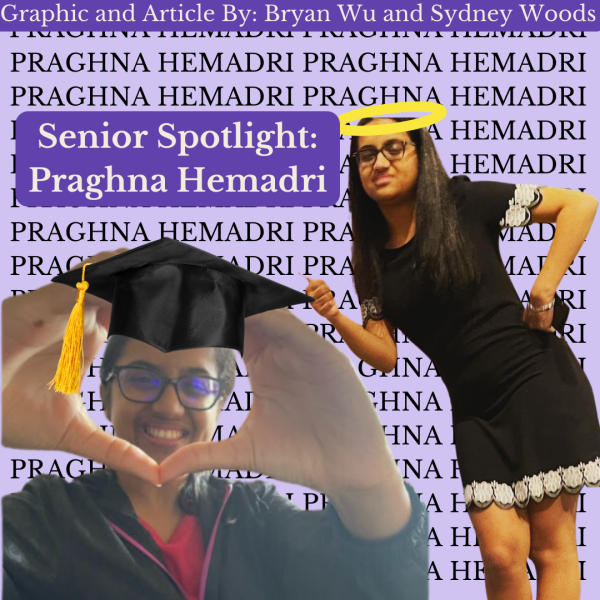Lu-Do or Lu-Don’t: Luddite Club Crossfire
By Ellie Maguire
Lud·dite /ˈləˌdīt/
noun
1. DEROGATORY
a person opposed to new technology or ways of working.
“a small-minded Luddite resisting progress”
A group of teens in New York meets weekly on Sunday afternoons in Prospect Park. The group joins together under one rule: no smartphones. This group is called the Luddite Club.
The Luddite Club was created by Logan Lane, a senior at Edward R. Murrow High School in Brooklyn. She was inspired to curate the club following the pandemic when she realized that she had become all too dependent on her phone and overused social media.
In an interview with the New York Times, many members shared their experience in the club and how it has enlightened them. Lola Shub, a fellow senior member said “When I got my flip phone, things instantly changed…I started using my brain. It made me observe myself as a person.” The club has clearly made a positive impact on its environment, as the NYT article shared accounts of Luddite clubs starting at other nearby schools.
Luddite Club, in it’s true essence, is a reminder to live a life away from the internet. Being independent from your phone is an excellent habit to have, regardless of the extremity you take it to. Devout members may do away with a phone entirely, but anyone committed to Luddite Club could simply power their phone off at meetings, and keep a more conscious mind of their phone usage.
Another crucial point of the club is to take the lulls of time you have, the moments when you aren’t busy, and experience them without looking at your screen, break the habit of going on your phone when you’re bored.
As a Luddite Club member put it best, “You post something on social media, you don’t get enough likes, then you don’t feel good about yourself. That shouldn’t have to happen to anyone. Being in this club reminds me we’re all living on a floating rock and that it’s all going to be OK.”
A Luddite Club at Enloe is the exact reminder that many of us need from our busy lives, most of which is lived through our computers and phones. This club would have the ability to give students a break from their schoolwork, enjoy each other’s company, enjoy nature, and initiate habits of taking time for ourselves. Most importantly, the club would remind us all of how capable we are of producing thoughts without our phones. Too often people rely on the brain of the internet in their hand ignoring the knowledge they can find in literature, art, or even meditation.
The Luddite club forces human connection in a way that can feel subconsciously unattainable in today’s society. It provides an opportunity to relate to peers on a level that has become ignored by the easier substitution of online interaction.
By Nora Gillett
Members of the Luddite Club claim they are starting a movement, an anti-cellphone revolution, but are they really? What are the effects of going cold-turkey on your phones? Who is the target audience?
When Logan Lane started the club, she just wanted to distance herself from social media, because she was realizing how often she was on her phone. She put her phone in a box and has been telling others to do the same ever since.
This movement started to spread in Lane’s own school and later began to take root in surrounding schools. Since the start of the club, Lane has gone on TV and been interviewed about why she thinks this movement is good for her generation. In my opinion, it isn’t as “good” or “healthy” for this generation as she claims.
The Luddite Club preaches going cold-turkey on your phone, with the choices being no phone or a flip phone. This would involve being able to cut ties with anyone you contact not over text, and to any services your phone might offer. These people could be say a boss, and the services might be a schedule or school resources. Many may be privileged enough not to worry about job scheduling or even handling school information on their own. People who use their phone as a way to communicate with their bosses to help keep a job cannot go cold-turkey. The choices being so extreme may discourage people from participating in the “enlightening” message because it doesn’t work for their lives. Furthermore, the way that the club suggests you spend time off your phone, is to travel to new places (in the city or outside the city) and spend your time reading or hanging out with friends. To assume people have the ability to drop everything and spend their “free” time traveling or hanging out with friends or reading, is awfully presumptuous as well. Many people cannot drop everything because of the dependance on their devices for services other than social media.
The main message the club preaches is that social media is bad, and addictive, and this generation should distance themselves from it by any means necessary. The problem I have with the club isn’t their message, rather their means of spreading it and the ways they think people should go about distancing themselves.
The Luddite Club isn’t bad in itself, rather they are oblivious to the services a phone provides for many people. I’m anti-Luddite Club not because I don’t believe social media is only becoming worse for us and that the world needs to distance, but because I believe the way the Luddite Club is going about this process is ignorant. After years of relying on something, you can’t just drop it without notice.
Although I wouldn’t discourage a Luddite Club at Enloe, I myself would not join it.
Your donation will support the student journalists of Enloe Magnet High School, allowing us to cover our annual website costs. We are extremely grateful for any contribution, big or small!

(She/her)
Ellie is a senior at Enloe and a proud member of the Eagle's Eye staff! She is involved in various communities at Enloe, including dance,...

(She/Her)
This is Nora's second year on the Eagle's Eye and first year as a graphic designer. Though she loves making graphics, she also loves to spend...

















